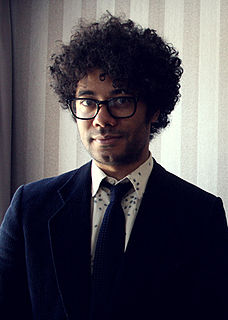A Quote by Ben Gibbard
I think sometimes a narrative can come out of a single word.
Related Quotes
Is it different to come out now than it was to come out thirty-five years ago? Sometimes. But if you come out now and you come from poverty and you come from racism, you come from the terror of communities that are immigrant communities or communities where you're already a moving target because of who you are, this is not a place where it's any easier to be LGBT even if there's a community center in every single borough.
The simple circumstantial narrative (did such a narrative exist) of the ruin of a single town, of the misfortunes of a single family, might exhibit an interesting and instructive picture of human manners; but the tedious repetition of vague and declamatory complaints would fatigue the attention of the most patient reader.
For queer people, the personal is very political, just to talk about it in a public space. It's very political just to come out and take up that space and be like, 'This is my narrative. It's not an outsider narrative, and it's not a fetish narrative; it's just my story, and it's worth being told and listened to.'
Now, we're used to thinking of communism as being once-upon-a-time-all-things-were-owned-in-common, maybe-someday-this-will-come-again. And people agree that there is a sort of epic narrative going on here. I think we should just throw this narrative out, it's irrelevant anyway, and who cares who owns things? I don't. You know, we all own the White House. So what? I still can't go in, right?
The strange thing about the apocalypse is that it's uneven. For some people, it goes one way and for others another way, so that there's always this shifting relation to the narrative of the disaster. Sometimes apocalypses are just structural fictions, and sometimes they're real. Sometimes a narrative requires an end - the fact that the beginning was always leading somewhere becomes clear at the end. There's an idea that we're always in the middle, but we posit this apocalyptic end in order to also be able to project into the past or the beginning. I think that's true and false.
The close-up has no equivalent in a narrative fashioned of words. Literature is totally lacking in any working method to enable it to isolate a single vastly enlarged detail in which one face comes forward to underline a state of mind or stress the importance of a single detail in comparison with the rest. As a narrative device, the ability to vary the distance between the camera and the object may be a small thing indeed, but it makes for a notable difference between cinema and oral or written narrative, in which the distance between language and image is always the same.
Any narrative, whether it's fiction or not, you have to approach it as though it really happened to you. I think that's the only way to get inside the characters and make the narrative work. It's a storytelling tradition, and I think to come off as genuine then you have to really approach it that way.
I think my sensibilities about storytelling and character just automatically come into play when I'm trying to work on any kind of narrative. For me, it doesn't really matter what the source of the narrative is. I will be looking for ways to make it into an intriguing story with empathetic characters.
I was like, "This is a new thing that the gay people have decided? That's the gayest thing I've ever heard in my life." You can't do that. You can't decide that a word is forbidden now collectively amongst your group of human beings, that the word is a slanderous evil nasty word about homosexuals. It's not, the word doesn't mean that. And sometimes it's a good word to use in comedy. That's what your friend has to realize when he's at a bar just yelling out the word.




































